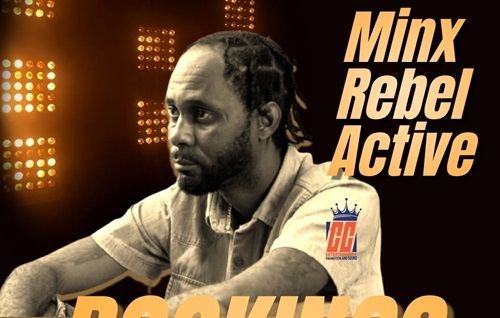
ARTIST DEVELOPMENT AND ARTIST MANAGEMENT
Artist Management.
As soon as an author or performer, or an artist who is both author and performer, starts
to become successful he/she will need to find a manager. A manager is someone who
will look after the business side of the artist’s career and will interface with all other
parties involved in contributing to the artist’s commercial success. Commerce and art
do not always sit happily together and it is the manager’s job to provide that often
difficult interface, and make it work. Managers are the only group of people in the
worldwide music industry who have to know about every aspect of the music industry.
They are the ones who have to make the rules of copyright work on a daily basis and it
is they who have to grapple with the rapid developments in technology and make sure,
as far as possible, that the artist is paid.
Let us consider the main aspects of management. We will refer to an individual artist
or a group or band of musicians or singers as the ‘artist’.
Artists seeking Management
In the early stages it is often a good idea for artists to manage themselves until they reach the
point where they need outside help. Alternatively it may be that a friend or relative of the artist
or band takes on the management role at this early stage. It is very important that the artist,
as soon as possible, is conscious of the need to build up a fan base. A fan base is a database
of people who are interested in the artist and wish to find out where he/she is performing,
and if and when he/she is releasing records etc. If a phonogram producer comes to see an
artist play live and the venue is full the artist stands a much better chance of being offered a
recording contract, if that is the artist’s aim. Phonogram producers want to sell as many
records as possible and if they see that an artist already has a substantial and enthusiastic fan
base they will be reassured that there will be a market for the artist’s recordings.
In the early stages it is a good idea for the artist to try and secure as many live
appearances as possible. By doing this he/she can improve his/her skills and build up a
fan base. One of the best ways of building the fan base is to get a friend of the band
to hand out forms and pens and encourage members of the audience to complete
and return them on the night of the performance. Typically the forms should have the
name of the artist at the top and request
Name
Address
E-Mail address
Tel No: (optional)
Any comments on tonight’s performance
This information should then be recorded in a book or transferred to a computer
database. Every time the artist has a new show or some other event is taking place
such as a new recording becoming available, the artist should e-mail or mail the
database well in advance with the information. By doing this a fan base will be created
which should greatly improve audience numbers at live performances and generally
stimulate interest in the artist.
If possible, the artist should create his/her own website and have web pages on
community sites such as Bit2Music Multi Media (www.boldnboasyent.com – see the section on the
Internet on page 100).
With the establishment of a good and interesting website the
artist is immediately making him/herself known to the entire world. Companies such
as Intel and Microsoft in conjunction with UNESCO are making available very basic
personal computers (PCs) for as little as US$100, specifically aimed at developing
countries. The access this will provide is very exciting, both for artists and for consumers.
When things start building the artist should consider engaging a manager but where
does an artist find the right one? Having no manager is preferable to having a bad one,
but a good and honest manager can make all the difference between success and
failure. A good place to start is for the artist to find out who manages his/her own
favourite artists by searching the web or by looking at his/her favourite artists’
recordings. There are also lists of managers and their contact details in publications
such as Pollstar (www.pollstar.com) and Billboard (www.billboard.com). It is also worth
asking other artists and people in the music business for recommendations. If an artist
already has a music lawyer or accountant these professionals can also sometimes
recommend a suitable manager.
Yet another approach is to ask a family member or friend who has good entrepreneurial
and administrative skills to be the manager. If this route is taken it is really important
that the relative or family friend is prepared to learn and train in the complexities of the
music business and never take his/her position for granted
A good manager should:
- Be honest.
- Be an enabler (he or she should be able to create opportunities that the
artist would not otherwise have achieved alone). - Be a good administrator (he or she should be good at keeping accurate
and up-to-date financial records and be effective in ensuring that income
streams are maximised and that the artist is paid). - Be a good communicator (relate well to other people and be good at
networking). - Be a good negotiator.
Managers seeking Artists
Let us now consider the issue from a manager’s perspective. If someone wants to
become a manager and they have good communication, administrative, networking,
business and negotiating skills how do they find an artist to work with?
The first thing is to make sure the manager understands how the music industry
works by reading publications, such as this one, or by participating in educational
courses. No matter how experienced a manager becomes it is always important to be
updating and improving his/her knowledge by participating in training courses or
simply by reading the latest books, magazines, or obtaining information from the
Internet. This applies to all professionals in all occupations.
Networking is the next important step. By networking we mean getting to know as
many people as possible in the industry. This will include record companies,
publishers, promoters, journalists, film and advertising people and collection societies
amongst others. Knowing all the right people will help a manager to open doors
further down the road, and its importance cannot be underestimated. Such
relationships can often result in recommendations from a record company, publisher,
lawyer or accountant to an artist on the manager’s behalf.
Another way to find an artist is for a manager to simply visit clubs and small venues
and to trust his/her own judgement to find an artist with real potential.
One way for a manager to learn more about artist management is to join the Music
Managers Forum (MMF). This organisation is mainly concerned with artists’ rights but
also offers workshops and information for managers and artists. There are Music
Managers Forums in Australia, Belgium, Canada, Denmark, Finland, France, Germany,
the Netherlands, New Zealand, Norway, Poland, South Africa, Sweden, the UK and the
US. The international umbrella body is the International Music Managers Forum
(www.immf.com)
Make a Donation it keep us running. Thanks a lot!
Donate Via Wallets
Select a wallet to accept donation in ETH BNB BUSD etc..
-
 BIT2MUSICTOKEN$117.75
BIT2MUSICTOKEN$117.75 -
 Right By Your Side By Willy Doo (Mento Reggae Single)$1.29
Right By Your Side By Willy Doo (Mento Reggae Single)$1.29 -
 BMI Registration$15,745.76
BMI Registration$15,745.76 -
 Gaza War Instrumental$99.99
Gaza War Instrumental$99.99




















